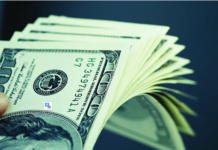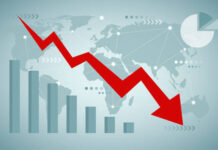
Bay of Bengal produces 6,50,000 tons of fish annually
Experts have called for focusing more on mariculture development by following the methods of other countries to tap the vast resources of the Bay of Bengal.
Many countries are breeding different types of fish in the sea and we should do the same in marine agriculture, said Rear Admiral (retd) Md Khurshed Alam, secretary of maritime affairs unit of Foreign Ministry.
He stressed the need for a pilot project and further studies to make this feasible.
The maritime affairs secretary said Bangladesh will need about 100 million tons of additional fish due to a rise in population, and if the country can start mariculture right away, it would help produce at least two to three million tons of fish in the pilot project.
Md Khurshed Alam was addressing the gathering at the inaugural ceremony of “Bangladesh Blue Economy Dialogue on Fisheries and Mariculture” held at a city hotel.
The Fisheries and Livestock Ministry and the Food and Agriculture Organization (FAO) of the UN, jointly organized the two-day long dialogue aimed at identifying, discussing, and arriving at a consensus on the essential enabling conditions, and to facilitate fisheries and aquaculture, to contribute meaningfully and sustainably to the blue economy of Bangladesh.
According to Khurshed, there are four areas in a blue economy: fishing, minerals, shipping, and energy.
At present, 2-3% of the global food supply comes from the seas, while in Bangladesh 5% of foreign exchange earnings are from fish exports and 4% of the GDP from fisheries, he said.
Norwegian Ambassador, Sidsel Bleken, said the sea and rivers are important to Bangladesh where stakeholders should work together, respecting international laws to explore the potential.
“We believe ‘fish’ has no border. Academia, the scientific community and private sector, ministries and governments worldwide, should cooperate in the blue economy,” she added.
Secretary of Fisheries Ministry, Md Raisul Alam Mondal, presiding over the event, said Bangladesh won over the sea five years ago, and is now moving forward, trying to maintain the ecosystem, curb ocean pollution, and boost fisheries.
He stressed further monitoring and surveillance in the sea to explore the full potential.
6,50,000 ton fish from Bay of Bengal
State Minister of Fisheries and Livestock, Ashraf Ali Khan Khasru said, currently 6,50,000 tons of fish come from the Bay of Bengal and the government has taken up initiatives to enhance fish production.
“In fiscal year 2017-18, the country has produced 4.3 million tons of fish, of which, 6,50,000 tons came from the sea which is 16% of total production,” Ashraf said.
The Bay of Bengal is home to 475 species of fish and 36 species of shrimp, the state minister said.
He said the government has recently taken up a project with a $240 million loan from the World Bank for the “Sustainable coastal and marine fisheries project” to develop coastal and marine fisheries resources.
On the first day of the dialogue, there were multiple sessions on the potential of a blue economy, highlighting sustainable development needs and leveraging opportunities in Bangladesh.
Source: Dhaka Tribune.









